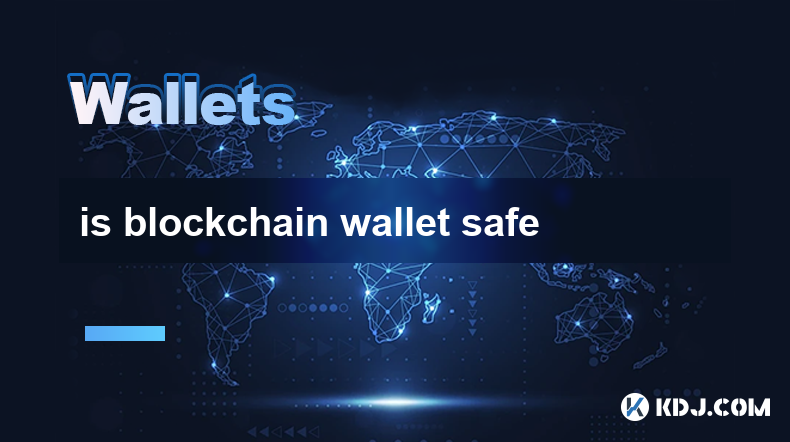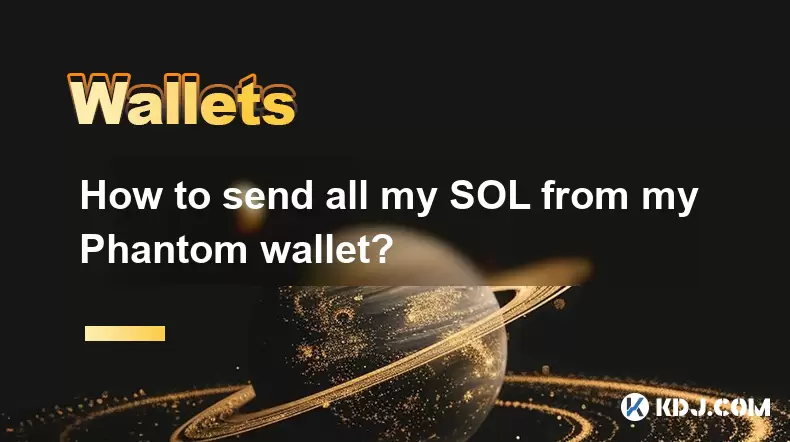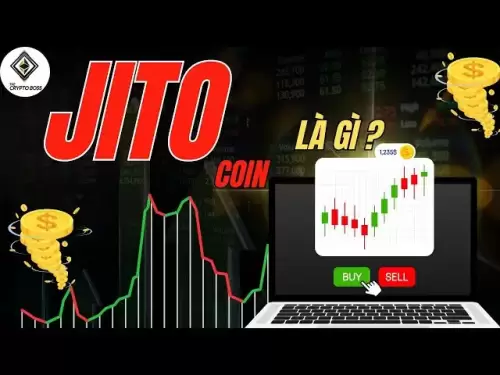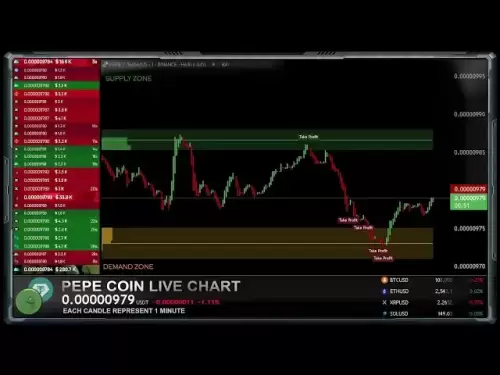-
 Bitcoin
Bitcoin $107,810.8710
-1.45% -
 Ethereum
Ethereum $2,531.4386
-1.75% -
 Tether USDt
Tether USDt $1.0000
-0.03% -
 XRP
XRP $2.2542
-0.99% -
 BNB
BNB $659.1350
-0.50% -
 Solana
Solana $148.5456
-2.40% -
 USDC
USDC $0.9999
-0.02% -
 TRON
TRON $0.2868
-0.44% -
 Dogecoin
Dogecoin $0.1666
-3.65% -
 Cardano
Cardano $0.5751
-2.36% -
 Hyperliquid
Hyperliquid $37.6845
-5.51% -
 Bitcoin Cash
Bitcoin Cash $494.9448
-0.65% -
 Sui
Sui $2.8396
-3.31% -
 Chainlink
Chainlink $13.2423
-2.59% -
 UNUS SED LEO
UNUS SED LEO $9.0482
0.02% -
 Stellar
Stellar $0.2467
-2.44% -
 Avalanche
Avalanche $17.8165
-3.63% -
 Shiba Inu
Shiba Inu $0.0...01158
-2.41% -
 Toncoin
Toncoin $2.7397
-3.42% -
 Hedera
Hedera $0.1560
-2.73% -
 Litecoin
Litecoin $85.8559
-2.34% -
 Monero
Monero $315.3710
-2.30% -
 Dai
Dai $1.0001
0.00% -
 Polkadot
Polkadot $3.3443
-2.03% -
 Ethena USDe
Ethena USDe $1.0001
0.01% -
 Bitget Token
Bitget Token $4.2888
-3.73% -
 Uniswap
Uniswap $7.3388
-1.57% -
 Aave
Aave $278.2986
-3.05% -
 Pepe
Pepe $0.0...09807
-3.67% -
 Pi
Pi $0.4563
-2.39%
is blockchain wallet safe
Blockchain wallet security varies greatly; hardware wallets offer the strongest protection via offline key storage, while software wallets, though convenient, are vulnerable to malware and phishing. Careful selection and robust security practices are crucial for minimizing risk.
Mar 24, 2025 at 01:57 pm

Key Points:
- Blockchain wallets offer varying levels of security depending on the type and implementation.
- Hardware wallets are generally considered the most secure option, offering offline storage of private keys.
- Software wallets, while convenient, are vulnerable to malware and phishing attacks.
- Paper wallets, though secure in theory, carry risks associated with physical loss or damage.
- Understanding the security features of your chosen wallet and practicing good security habits are crucial for minimizing risk.
Is Blockchain Wallet Safe? A Deep Dive into Security
The safety of a blockchain wallet is not a simple yes or no answer. It hinges on several factors, primarily the type of wallet used and the user's security practices. While blockchain technology itself is inherently secure, the methods of accessing and managing your cryptocurrency are where vulnerabilities arise.
Hardware Wallets: The Fortress of Crypto Security
Hardware wallets are considered the gold standard in cryptocurrency security. These physical devices store your private keys offline, making them virtually immune to online threats like hacking and malware. Leading brands like Ledger and Trezor offer robust security features, including tamper-evident seals and PIN protection. However, even hardware wallets are not impervious to all risks; physical theft or loss remains a possibility.
Software Wallets: Convenience vs. Security
Software wallets, accessible via desktop, mobile, or web applications, offer ease of use and convenience. However, this accessibility comes at a cost. They are susceptible to malware infections that can steal your private keys. Phishing scams, where users are tricked into revealing their credentials, also pose a significant threat. Choosing reputable providers and regularly updating your software can mitigate some of these risks.
Paper Wallets: The Offline, DIY Approach
Paper wallets involve printing your public and private keys on paper. This method offers offline security, as your keys are never exposed to the internet. However, paper wallets are vulnerable to physical damage, loss, or theft. Proper storage and handling are crucial, and even slight damage to the QR codes can render your funds inaccessible.
Choosing the Right Wallet: A Balancing Act
The best blockchain wallet for you depends on your security needs and comfort level with technology. Hardware wallets provide the strongest security but require a higher upfront investment. Software wallets offer convenience but demand diligent security practices. Paper wallets provide a low-cost option but require careful physical safeguarding.
Understanding Security Features
Many wallets incorporate multiple security layers. Two-factor authentication (2FA), for example, adds an extra layer of protection by requiring a second verification method, like a code from your phone, in addition to your password. Biometric authentication, using fingerprints or facial recognition, offers another level of security, though its effectiveness varies depending on the implementation. Regularly updating your wallet software is crucial for patching security vulnerabilities.
Minimizing Risks: Best Practices
- Strong Passwords: Use unique, complex passwords for each wallet.
- Backup Your Keys: Always create backups of your private keys, but store them securely and separately from your wallet.
- Beware of Phishing: Be cautious of suspicious emails, websites, or messages requesting your private keys.
- Software Updates: Regularly update your wallet software to benefit from the latest security patches.
- Multiple Wallets: Consider using multiple wallets to diversify your holdings and reduce risk.
Different Types of Blockchain Wallets and Their Security Implications
- Custodial Wallets: These wallets are managed by a third party, offering convenience but relinquishing control of your private keys. Security relies on the provider's infrastructure and security practices.
- Non-Custodial Wallets: You retain complete control over your private keys, offering greater security but demanding more responsibility and technical understanding.
Security Threats and Mitigation Strategies
- Malware: Install reputable antivirus software and avoid downloading wallet software from untrusted sources.
- Phishing: Be vigilant about suspicious links and emails. Verify the sender's identity before clicking on any links or providing any information.
- Key Loss or Theft: Securely store your private keys and backup information. Consider using a password manager to securely store sensitive data.
Frequently Asked Questions
Q: Are all blockchain wallets equally secure?
A: No, the security of a blockchain wallet varies greatly depending on the type of wallet (hardware, software, paper) and the security measures implemented. Hardware wallets generally offer the highest level of security.
Q: Can my cryptocurrency be stolen from a blockchain wallet?
A: Yes, cryptocurrency can be stolen if your private keys are compromised. This can occur through malware, phishing attacks, or physical theft (in the case of hardware or paper wallets).
Q: How can I protect my blockchain wallet from hacking?
A: Use strong passwords, enable two-factor authentication, be wary of phishing scams, regularly update your wallet software, and choose a reputable wallet provider. For maximum security, consider using a hardware wallet.
Q: What should I do if I suspect my blockchain wallet has been compromised?
A: Immediately change your passwords, contact your wallet provider if applicable, and monitor your account activity for unauthorized transactions. Consider reporting the incident to the appropriate authorities.
Q: Is it safe to use a mobile blockchain wallet?
A: Mobile wallets can be safe if you choose a reputable provider, keep your software updated, and practice good security habits, such as using a strong password and two-factor authentication. However, they are generally less secure than hardware wallets due to their vulnerability to malware and phishing attacks.
Disclaimer:info@kdj.com
The information provided is not trading advice. kdj.com does not assume any responsibility for any investments made based on the information provided in this article. Cryptocurrencies are highly volatile and it is highly recommended that you invest with caution after thorough research!
If you believe that the content used on this website infringes your copyright, please contact us immediately (info@kdj.com) and we will delete it promptly.
- KuCoin, AI Incentives, and Gaming RWA: A New Era?
- 2025-07-08 14:30:12
- Meme Token Mania: SPX6900, TOKEN6900, and the Degens Driving Crypto's Brain Rot
- 2025-07-08 14:30:12
- Bitcoin Gains and Strategy Reports: What's the Haps?
- 2025-07-08 15:10:12
- Ripple, XRP ETF, Latest Data: Hopes Fade but Innovation Blooms?
- 2025-07-08 15:10:12
- Eric Trump, Bitcoin Asia, and Hong Kong: A Power Trio Shaping Crypto's Future
- 2025-07-08 14:50:12
- Pumpfun, Token Sale, and Gate Exchange: What's the Deal?
- 2025-07-08 14:50:12
Related knowledge

How to cancel a pending transaction in Phantom wallet?
Jul 03,2025 at 07:21pm
Understanding Pending Transactions in Phantom WalletA pending transaction in the Phantom wallet occurs when a user initiates a transfer or interaction with the Solana blockchain, but it hasn't yet been confirmed by the network. This can happen due to various reasons such as low transaction fees, network congestion, or incorrect gas settings. It's import...

How to see the estimated value of my tokens in Phantom wallet?
Jul 04,2025 at 12:21am
What is Phantom Wallet?Phantom wallet is one of the most popular cryptocurrency wallets designed for the Solana blockchain. It allows users to store, send, receive, and manage various tokens built on Solana, including SPL tokens and NFTs. The wallet offers a user-friendly interface, making it accessible for both beginners and advanced users in the crypt...

How to lock my Phantom wallet extension?
Jul 03,2025 at 11:14am
What Is the Phantom Wallet and Why Lock It?The Phantom wallet is a popular non-custodial cryptocurrency wallet designed for interacting with the Solana blockchain. Supporting both browser extensions and mobile apps, Phantom allows users to store, send, receive, and stake SOL tokens, as well as interact with decentralized applications (dApps). Securing y...

Does Phantom wallet offer two-factor authentication (2FA)?
Jul 03,2025 at 09:00am
Understanding Phantom Wallet and Its Security FeaturesPhantom wallet is a widely used non-custodial cryptocurrency wallet that supports the Solana blockchain. It allows users to store, send, receive, and interact with decentralized applications (dApps) seamlessly. As security is a top priority for any crypto wallet user, security features like two-facto...

How to send all my SOL from my Phantom wallet?
Jul 06,2025 at 10:00am
Preparing to Send SOL from Your Phantom WalletBefore initiating any transaction, it is crucial to ensure that your Phantom wallet is fully set up and connected to the correct network. Phantom supports multiple networks, but for sending SOL, you must be on the Solana blockchain. Confirm this by checking the network indicator in the top-right corner of th...

What is "rent" on Solana and how does it affect my Phantom wallet?
Jul 02,2025 at 08:35pm
Understanding 'Rent' on SolanaIn the context of Solana, the term 'rent' refers to a storage fee that users pay for maintaining data on the blockchain. Unlike Ethereum, where storage costs are paid once via gas fees during contract deployment, Solana implements a recurring cost model to ensure efficient usage of network resources. This means that any acc...

How to cancel a pending transaction in Phantom wallet?
Jul 03,2025 at 07:21pm
Understanding Pending Transactions in Phantom WalletA pending transaction in the Phantom wallet occurs when a user initiates a transfer or interaction with the Solana blockchain, but it hasn't yet been confirmed by the network. This can happen due to various reasons such as low transaction fees, network congestion, or incorrect gas settings. It's import...

How to see the estimated value of my tokens in Phantom wallet?
Jul 04,2025 at 12:21am
What is Phantom Wallet?Phantom wallet is one of the most popular cryptocurrency wallets designed for the Solana blockchain. It allows users to store, send, receive, and manage various tokens built on Solana, including SPL tokens and NFTs. The wallet offers a user-friendly interface, making it accessible for both beginners and advanced users in the crypt...

How to lock my Phantom wallet extension?
Jul 03,2025 at 11:14am
What Is the Phantom Wallet and Why Lock It?The Phantom wallet is a popular non-custodial cryptocurrency wallet designed for interacting with the Solana blockchain. Supporting both browser extensions and mobile apps, Phantom allows users to store, send, receive, and stake SOL tokens, as well as interact with decentralized applications (dApps). Securing y...

Does Phantom wallet offer two-factor authentication (2FA)?
Jul 03,2025 at 09:00am
Understanding Phantom Wallet and Its Security FeaturesPhantom wallet is a widely used non-custodial cryptocurrency wallet that supports the Solana blockchain. It allows users to store, send, receive, and interact with decentralized applications (dApps) seamlessly. As security is a top priority for any crypto wallet user, security features like two-facto...

How to send all my SOL from my Phantom wallet?
Jul 06,2025 at 10:00am
Preparing to Send SOL from Your Phantom WalletBefore initiating any transaction, it is crucial to ensure that your Phantom wallet is fully set up and connected to the correct network. Phantom supports multiple networks, but for sending SOL, you must be on the Solana blockchain. Confirm this by checking the network indicator in the top-right corner of th...

What is "rent" on Solana and how does it affect my Phantom wallet?
Jul 02,2025 at 08:35pm
Understanding 'Rent' on SolanaIn the context of Solana, the term 'rent' refers to a storage fee that users pay for maintaining data on the blockchain. Unlike Ethereum, where storage costs are paid once via gas fees during contract deployment, Solana implements a recurring cost model to ensure efficient usage of network resources. This means that any acc...
See all articles

























































































